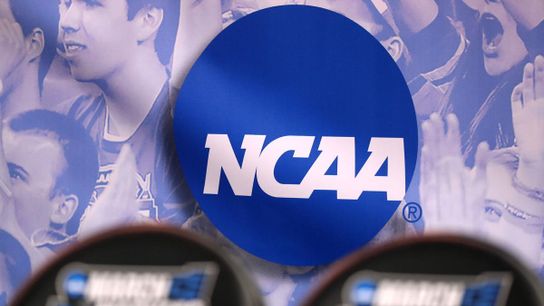The NCAA on Wednesday took a major step forward to establishing long-awaited guardrails to govern the new world order coming this summer, pending the expected approval of the NCAA v. House settlement on April 7.
That's right, they formed another committee.
Ten ADs, two from each of the Power 5 conferences, will manage the implementation of new rules and processes.
Who's in charge here? The ten ADs are: Trev Alberts (Texas A&M), Scott Barnes (Oregon State), Mitch Barnhart (Kentucky), J Batt (Georgia Tech), Ross Bjork (Ohio State), Pat Chun (Washington), John Cunningham (Cincinnati), Anne McCoy (Washington State), Graham Neff (Clemson) and Desiree Reed-Francois (Arizona).
What makes these ADs the right people to manage all this? From the NCAA: "The extensive experience of these athletics directors makes them particularly well-suited to ensure that the rules, systems and processes put in place to implement the settlement anticipate potential issues and are ultimately effective in bringing order to chaos amid the current realities of college sports."
What are they going to be doing? There are four main goals of this group:
1. Draft and clarify rules to "facilitate consistent compliance" with the settlement.
2. Develop a digital reporting system to track and measure all revenue-share payments from schools to players, to ensure everyone stays within the salary cap
3. Create a system to ensure all third-party NIL payments are "legitimate deals that will use the student-athlete's NIL to advance a valid business purpose" and not be, in effect, a roster bonus from a collective.
4. Form a new entity to enforce Points 1, 2 and 3 to investigate questionable deals, make timely and appropriate rulings, and punish rule-breakers.
Wait, punishments? Yes. The plan was laid out in a Yahoo piece last month. They're talking about fines and suspensions.
How are they going to decide what is "legitimate" NIL? Say hello to Deloitte, the British multinational professional services firm that will create a system to evaluate whether each deal at $600 or above is fair market value for that service. In short, if three athletes make $6,000 for appearing on a podcast with local media, and a collective is trying to pay a fourth athlete $60,000, Deloitte is going to tell that fourth athlete to try again.
Wait, they're going to tell college athletes (who are not employees, remember) how much money they're allowed to make? And they think they can get away with it? Yep. To a point.
“Even with the new settlement, we are going to still be peppered with challenges and lawsuits,” Mississippi State president Mark Keenum told Yahoo last month. “When our clearinghouse tells an athlete that your fair market deal isn’t fair market and their representatives challenge that in court, you need, more than ever, a legal, congressional resolution to this.”
